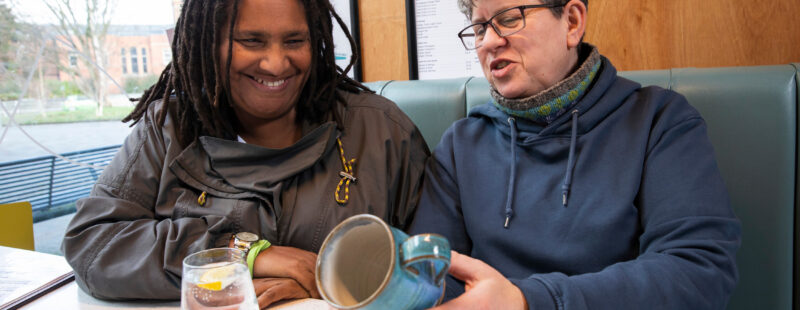Written by Paul Cann, Co-founder, Campaign to End Loneliness and CEO, Global Initiative on Loneliness and Connection.
Heralding a landmark in the loneliness community
It is a truth, almost universally acknowledged, that loneliness is part of the human condition: the primal desire to connect with others for safety, comfort and sustenance. Since we launched the Campaign to End Loneliness 12 years ago we have learned so much about this ‘emotion cluster’ we term loneliness.
We have come to understand the impact weak social connections can have on our physical as well as mental health. We have learned how we can all experience this painful gap in our social connectedness, whatever our age or circumstance: young people during the pandemic frustrated by their social imprisonment, a sociable person feeling the acute isolation caused by the onset of a hearing impairment, or that point when our partner of 50 years is no longer at our side, whether in body or personality. We all inhabit this ‘lonely city’ sometimes.
But we have also learned that there is so much inspiration and practical know-how to help, to be found by crossing borders. From Zimbabwe’s ‘Friendship Bench’[1] to Australia’s ‘Lonely Every Day’[2] energy and ideas are there a-plenty to be shared with which to drive action. The Campaign has always sensed this, and so a few years ago we joined colleagues in other countries to seize these opportunities, in 2021 playing a key role in forming the Global Initiative on Loneliness and Connection (GILC).
GILC is an aspiring international network with 16 voting members, agencies dedicated to the challenges of social connection in their respective countries. We are living out the belief that we have so much in common, and so much learning still to do. What for example are the key factors underlying the achievement of national strategies recently in countries as diverse as Denmark, Japan and the US ? The Campaign to End Loneliness first highlighted promising approaches to tackling loneliness in its 2014 report[3] – and now we are looking worldwide to find those. And what cultural differences are there in the way societies term and treat such social issues ?
Through GILC’s International Scientific Board and its community of over 500 researchers worldwide, through regular platforming of the ‘connection trailblazers’ in our communications, and by drilling down into the nitty-gritty of practice, we know we will go further together. As the Campaign to End Loneliness has consistently demonstrated in its work, partnership is the only real way forward. We are now a community of over 30,000, within which the government-backed powerhouse, the Tackling Loneliness Hub now numbers 700 expert professionals and senior figures driving work in their local or subject areas. Crucially, the Campaign as part of the What Works Centre for Well-Being[4] is grounded in a rigorous approach to gathering evidence that shares learning and secures lasting impact.
And now the Campaign to End Loneliness heralds a landmark in this area. The World Health Organisation (WHO) has just launched a three-year Commission on Social Connection[5], to address loneliness as a pressing health threat, to promote social connection, and to scale up solutions which will work across countries whatever their income levels. It has put its money where its mouth is with core funding. It has appointed 11 high-level Commissioners from across the world to oversee direction, a carefully selected Advisory Group, a Secretariat and a core GILC-WHO working group, to which I belong, laying foundations of evidence and helping the Commission gain momentum.
Since our launch in 2011 we have seen opinion formers reform their opinions, under-funded public agencies find significant funding, and leaders recognising these challenges as a call to leadership. The Campaign to End Loneliness will be there as a movement and a source of support to the WHO as it moves forward to make what we all hope will be lasting and universal impact. GILC will be there too, to ensure that its ‘Global’ truly means global.
References
[1] Reaching into communities with highly accessible first line mental health support www.friendshipbench.io
[2] Awareness campaign encouraging Australians to reach out to their neighbours www.neighbourseveryday.org
[3] ‘Promising Approaches to Tackling Loneliness’, Campaign to End Loneliness 2014 www.campaigntoendloneliness.org.uk
[4] The What Works Centre for Well-Being aims to accelerate research and democratise access to wellbeing evidence www.whatworkswellbeing.org
[5] WHO Commission on Social Connection 2024-26, bit.ly/WHO-CSC





No comments on this article yet. Please feel free to submit a comment below.
By submitting a comment you grant Campaign to End Loneliness a perpetual license to reproduce your words and name/web site in attribution. Inappropriate and irrelevant comments will be removed at an admin's discretion. Your email is used for verification purposes only, it will never be shared.